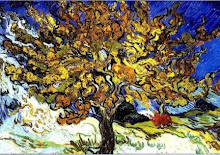When Calvino discusses the concept of multiplicity he does so by describing an author who writes in an encyclopedic form. What he means by this is that the author writes everything about a situation, even down to the minutest detail. I feel this is an important idea to think about but also a very difficult one to master. When we write we are told to make the reader feel as if they are in the moment; to describe every sight, smell, sound, feeling. So of course we are going to do that, but when does it become more than a description and more like an encyclopedia entry? I would say when the reader gets bored; this is how you can know that your descriptions have become overkill. I have come to see that there is a fine line between just enough and way too much. When you find yourself skimming and are no longer held by the descriptions, it has become too much. I chose the image of the never ending book because I feel this is exactly what Calvino is trying to point out. This "book" is probably one of those that talks about a building for ten pages when the words old, rundown, or decrepit would have sufficed. Sometimes it is necessary to write on one detail intensely but other times a few words will do. T.H. White's The Once and Future King is one of those books that can be described as encyclopedic. White can go off on a tangent that will last for pages about something that is not particularly important. I think this style works for this particular book because it is about Merlin who is suppose to know everything but is not all there and tends to ramble. But White writes about everything and there are lists upon lists in his text, many of which can be skimmed over. Like I said the encyclopedic style of writing works for some authors but in some cases it just gets redundant and boring
This entry was posted
on Monday, March 29, 2010
at 6:41 PM
. You can follow any responses to this entry through the
comments feed
.

